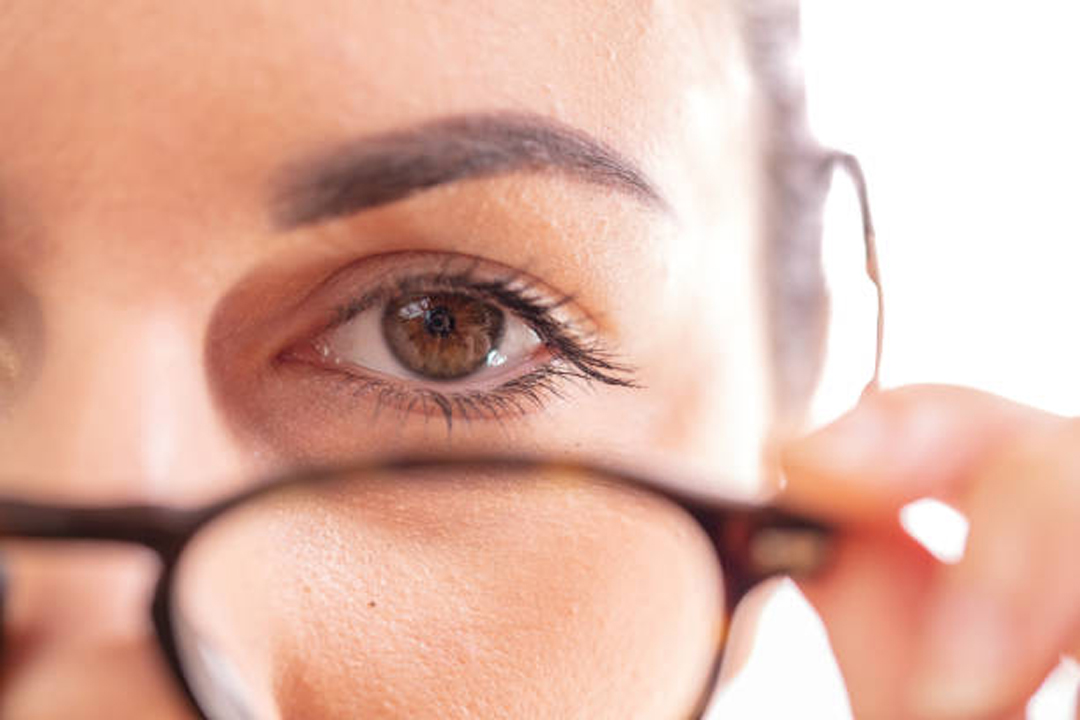
Did you know dry eyes could be more than just annoying? Up to 20% of the population is estimated to suffer from dry eye issues. While it may seem like a minor problem, the truth is that untreated or poorly managed dry eyes can lead to redness, burning sensations, blurred vision, and, in extreme cases, loss of sight. In this blog post, we’ll look at what causes dry eyes and how best to treat them so you can protect your optical health.
Dry eyes are a very common condition and can be caused by various factors. Here are some causes of dry eyes that you should be aware of:
Not blinking enough
According to the American Academy of Ophthalmology, not blinking enough is one of the most common causes of dry eyes. Many people are unknowingly caught up in staring at their computer and smartphone screens for hours daily. Their blink rate drops dramatically, leading to that uncomfortable dry eye feeling.
This is why it’s so important to take frequent breaks and consciously remind yourself to blink more often throughout the day. Our day-to-day blur makes us forget the importance of proper eye care. However, not taking measures to protect your eyes can have dangerous consequences. Get into the habit of blinking every 5 to 10 seconds, and your eyes will thank you!
Age
As we get older, our eyes often show the first physical signs of aging. Dry eye is a common complaint among older adults and is typically caused by an age-related decrease in tear production and a weakened blinking reflex. Our bodies become naturally less efficient as we age, including the ability to produce lubricating tears to keep our eyes moist, comfortable, and free from irritants. Start with simple solutions, like drinking plenty of water or humidifying your home. Also, regularly using protective eyewear, such as sunglasses or prescription glasses, may also be beneficial in managing dry eye discomfort.
Be mindful when donning contact lenses for extended periods, as your eyes may become increasingly dry. Make sure to swap out contacts frequently and use specially formulated solutions to alleviate dryness in the eye. Disposable lenses are highly recommended because they eliminate the need for contact lens solutions and preservatives. They also prevent the build-up of protein on the lenses.
Certain medications
Dry eye syndrome can cause significant patient discomfort, but some medications can help. Certain medications, such as antihistamines and antidepressants, can reduce the production of tears in the eyes, leading to dryness that often causes pain and irritation. It is essential to regulate how much of these medications are taken to limit dry eye symptoms while still receiving the desired results from your prescription. An optometrist or ophthalmologist can offer helpful advice and customized instructions on managing your medication’s effects for optimal eye health.
Environment
Draughty, windy conditions, air-conditioning, and low humidity levels can contribute to dry eyes. These environmental factors can draw moisture away from the eye’s surfaces and impair tear production, leading to a feeling of dryness that intensifies over time. It is essential to recognize factors that may exacerbate existing dry eye symptoms or even cause them in the first place. Changes to your home environment (or office space) may help alleviate some symptoms, although it is best to consult with your optometrist for proper diagnosis and treatment.
Health Problems
Health problems can be one of the causes of dry eyes, ranging from hormonal issues to more serious autoimmune diseases. The most common medical conditions linked to dry eyes include diabetes, thyroid disease, and lupus. Many people with these health problems find relief through proper treatment or controlling their overall health. But, unfortunately, there are times when dry eyes remain despite seeking care from healthcare professionals. You must contact your local optometrist if you experience any symptoms. They can advise you on managing this irritating condition best, so you can live a comfortable life.
More Tips to Prevent Dry Eyes
To prevent the discomfort of dry eyes, here are a few more recommendations:
- Spend more time outdoors: By spending time in natural daylight and fresh air, you can help reduce the chance of developing dry eyes.
- Take breaks during work or study sessions: Regular intervals during long work or study periods help prevent eye strain and give your eyes some much-needed rest from focusing intensely on one thing for too long.
- Eat an anti-inflammatory diet: Eating foods like leafy greens, fish, nuts, and avocados can help reduce inflammation in your body, which can positively affect your eyes.
By following these tips and understanding the potential causes of dry eyes, you can better manage your eye health and keep your vision in top shape. If you are still experiencing symptoms after trying some of the suggestions above, it is essential to contact your optometrist for further evaluation and treatment options.
Taking care of your eyes now will help ensure you have clear, comfortable vision for years to come. Finally, remember that prevention is always better than a cure, so protect and look after your eyes! Stay safe, and stay healthy!

